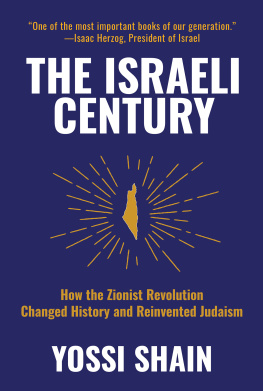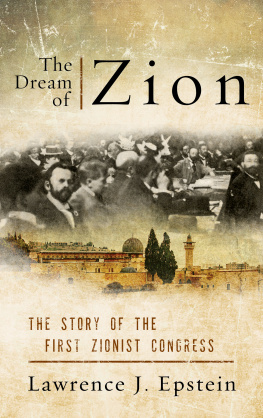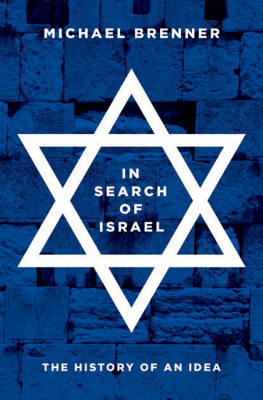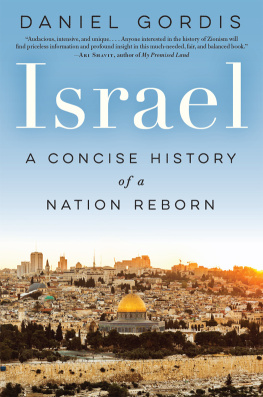Advanced Praise for
The Israeli Century
The Israeli Century is one of the most important books of our generation, emphasizing how Israel is becoming the center of the Jewish Peoples existence and is laying the solid foundations for its future.
Isaac Herzog, President of the State of Israel
The Israeli Century is an excellent book that transforms a sweeping and wide ranging story of Jewish history into a coherent narrative. Shain shows how Israel came to surpass and dominate all diaspora alternatives, and how Zionisms negation of exile still remains highly relevant today.
A. B. Yehoshua, Haaretz
With a broad and profound historical perspective, in his new and compelling book, Professor Shain explores Jewish history from its inception and invites the reader to under-stand the present era as a brand new development: the Israelization of Judaism, which largely also defines what it means to be a Jew beyond Israels borders.
Dr. Avi Shilon, Haaretz
Yossi Shain...engages the underlying foundations of the contemporary relationship between Israeli and American Jews through a truly provocative paradigm-changing thesis...[He] challenges the notion that Israel and the Diaspora are two worlds of Judaism. Rather, he presents a picture of a Jewish globe with Israel at its center. What characterizes the Israeli century is...not that the State of Israel is incrementally achieving consensus among all Jews. The main change is that regardless of whether one lives in Israel or not, or identifies with the Zionist project or not, Israel has become the central issue around which both Jews and non-Jews worldwide engage Judaism.
Adam Ferziger, Contemporary Jewry
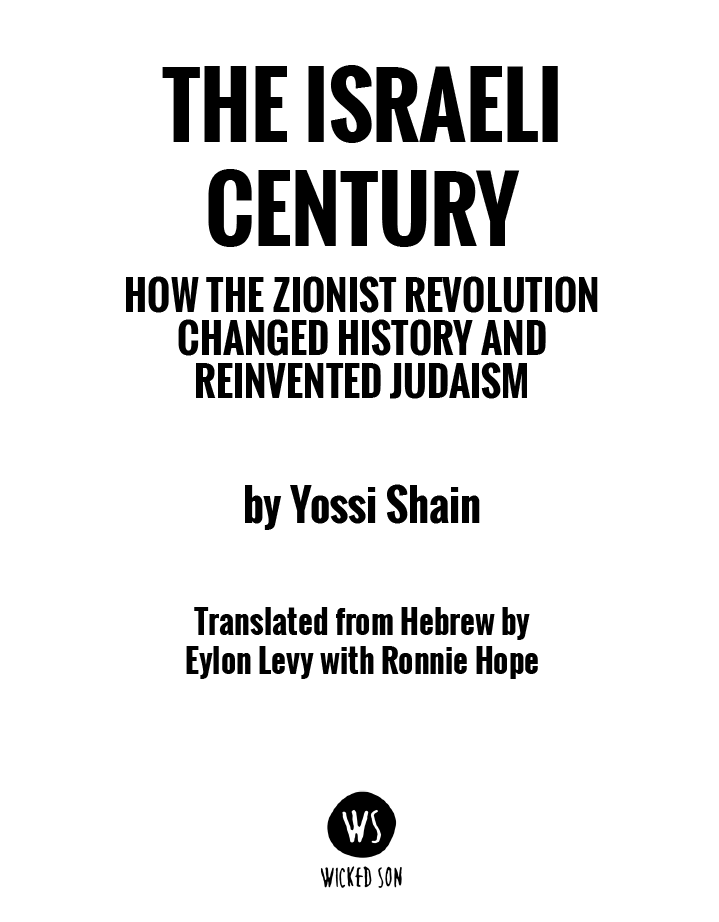
A WICKED SON BOOK
An Imprint of Post Hill Press
ISBN: 978-1-64293-845-6
ISBN (eBook): 978-1-64293-846-3
The Israeli Century:
How the Zionist Revolution Changed History and Reinvented Judaism
2021 by Yossi Shain
All Rights Reserved
Cover Design by Tiffani Shea
No part of this book may be reproduced, stored in a retrieval system, or transmitted by any means without the written permission of the author and publisher.


Post Hill Press
New York Nashville
posthillpress.com
Published in the United States of America
This book is dedicated to Vered Fishbein , my love.
Also by Yossi Shain
The Frontier of Loyalty: Political Exiles in the Age of the Nation-State
Governments-in-Exile in Contemporary World Politics
Between States: Interim Governments and Democratic Transitions (with Juan J. Linz)
Marketing the American Creed Abroad: Diasporas in the U.S. and Their Homelands
Kinship and Diasporas in International Affairs
The Language of Corruption and Israels Moral Culture (in Hebrew)
Table of Contents
Introduction:
The Israeli Century and the Israelization of Judaism
Chapter I:
The Jewish Paradigm and the End of History
Chapter II:
From Tribe to Sovereign Nation
Chapter III:
The Rise and Fall of Jewish Sovereignty During the Second Temple Era
Chapter IV:
Jewish Life in the Shadow of Christianity and Islam
Chapter V:
The Jews in the Era of the Modern Nation-State: From Passive Pawns to Active Players
Chapter VI:
The View from Eastern Europe
Chapter VII:
Die Goldene Medina
Chapter VIII:
The Israeli Century
The Israeli Century has been the most dramatic period in all of Jewish history. Over the course of a single lifetime, the Jewish people have moved from two millennia of statelessness to a life defined by the sovereignty of the State of Israel. During this short period, the entire Jewish people has undergone a metamorphosis. Israel has gradually become the most important force in all areas of Jewish life. In the last two decades especially, Israel has consolidated its hold as the most dominant entity in the Jewish experience, defining and determining Jewish identity, memory, and the place of Jews and Judaism among the nations. The Jewish center of gravitycultural, religious, political, demographic, and even economichas decamped from New York, and is now to be found in Jerusalem and Tel Aviv for the foreseeable future.
In May 2006, the celebrated Israeli author A. B. Yehoshua sparked a ferocious controversy when he told delegates to the American Jewish Committees week-long centennial celebration that, If, in one hundred years, Israel will exist, and I will come to the Diaspora and there will not be any Jews, I would say its normal. I will not cry for it. Because its very natural that every one of you will be American. Being Israeli is my skin, its not my jacket. You are changing jackets. Diaspora Judaism, Yehoshua added, is little more than a fancy spice box that is only opened to release its pleasing fragrance on Shabbat and Holidays. American Jews, he concluded, are only partial Jews, while Israeli Jews are total Jews.
The reactions came swiftly. The eminent NBC News anchor Ted Koppel, who is Jewish, rebuked him for disregarding the major contributions of Diaspora Jews to the continuity and prosperity of the Jewish people. There is something very special, universal and easily identifiable among all Jews, he said. It is beyond territory; it is something we all have in common. Leon Wieseltier, the storied literary editor of the New Republic , also berated Yehoshua, reminding him that Judaism existed long before Israel: There is Jewish religion, Jewish culture, Jewish literature, Jewish texts that have been with us for 3,000 years. Why do you insist on narrowing it down to Israeliness? Yehoshua was accused of being blind, among other things, to the continued dependence of Israel on the Diasporas money and political power.
Much has changed in the last few decades, however. Israels economy has grown quickly, with its per-capita GDP today on a par with the advanced economies of Europe and East Asia, and likely to surpass them. Its economic dependence on Diaspora Jews, as well as on the foreign aid from the United States government, has diminished dramatically, while its own economy and government budget have ballooned. At the same time, Israels military power has outstripped that of all its enemies, and it has made peace with the most powerful countries in the Arab world, though it still faces major challenges to its security, including existential threats. Today, many young Diaspora Jews no longer see Israel as a country in need, surrounded by fearsome enemies, but rather as a land of opportunity. Writing in March 2021 in Tablet , Emily Benedek described Israel as a unique place to unlock their human potential and create a robust future in a vital and growing society.
All of this stands in sharp contrast to what Jewish life looked like for many centuries prior to the establishment of Israel in 1948. The unpredictable nature of Jewish exilic life, which the literary critic Dan Miron calls the surprise of chaos, led Jews to constantly scour for new strategies to ensure their survival.
This book argues that the Israeli Century marks the end of a Jewish life built up in the air, an end to the era of Jewish chaos.
In the absence of sovereignty, Jews have always sought political arrangements to protect them, whether in their homeland or among other nations. The Jews survived the loss of national sovereignty thousands of years ago and developed a unique identity as a chosen people stripped of independence. They did so, in part, by placing their faith in a unitary, non-territorial deity who controlled history, and in the timeless text of the Bible as their portable constitution. They developed a rich theology based around their communal life in the absence of sovereignty. They excelled at preserving their particularism in the Diaspora, whether during times of stability or when suffering the violent whims of others.
Next page
